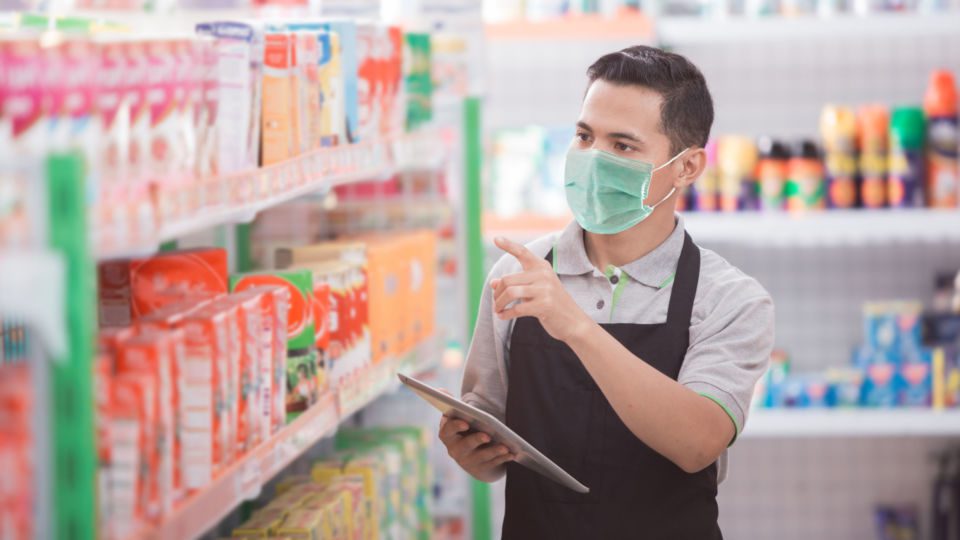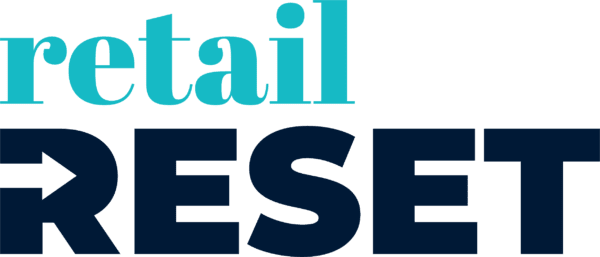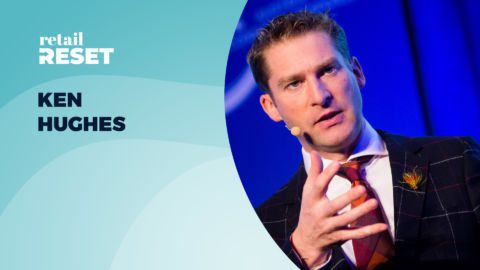 Overnight, the world’s frontline workers in essential retail emerged as the heroes they are during the COVID-19 pandemic, while furloughed workers from other retail sectors joined the 30 million Americans who have filed for unemployment since mid-March. Adapting to conditions that are changing by the hour, retailers have met customers in new channels, wrestled with supply chain, managed jurisdictional compliance, transformed operations and led scenario planning for store reopenings and holiday 2020.
Overnight, the world’s frontline workers in essential retail emerged as the heroes they are during the COVID-19 pandemic, while furloughed workers from other retail sectors joined the 30 million Americans who have filed for unemployment since mid-March. Adapting to conditions that are changing by the hour, retailers have met customers in new channels, wrestled with supply chain, managed jurisdictional compliance, transformed operations and led scenario planning for store reopenings and holiday 2020.
Store Reopening Strategies
In their calculations, executives must weigh a GDP not predicted to return to pre-pandemic levels earlier than 2022, the “sharpest decline in consumer spending that we have ever seen,” and consumer demand returning at an unpredictable pace. In response, top retail leaders recently surveyed say they plan to limit store hours and reduce staff by 22% as they reopen. In the face of the unknown, finding new ways to empower store associates where they will have to do more with less has become mission critical.
Consumer Expectations Of Corporations In Response To COVID-19
Adding rightful scrutiny to the reopening process will be a new layer of awareness consumers now have about the interconnectedness of people, product and place. In growing numbers, customers are rewarding brands that are protecting frontline employees, and registering precautions in the workplace as meaningful signals of a company’s commitment to public health and community. The Edelman Trust Barometer Special Report on Brand Trust and the Coronavirus Pandemic found that 62% of consumers don’t think our country will make it through the crisis without brands playing a “critical role” in the fight against the coronavirus, with 55% saying brands and companies are responding both more quickly and more effectively than government. They are steadfastly calling on corporate leaders to demonstrate commitment to employee and consumer safety, despite the economic threats that may loom.
Jennifer Cohan, President of Edelman New York, explained some of their more urgent findings and shared that respondents today feel, “…‘my employer’ is the most trusted relationship, ahead of business in general, NGOs, government and media. That trust will surely be tested by companies’ commitment to their employees during the crisis. A stunning 90% of our survey respondents want companies and brands to do everything they can to protect the well-being and financial security of their employees and suppliers, even if it means suffering big financial losses during the pandemic. The penalty for companies that put profit ahead of people is severe, with 71% of people saying that this will erode their trust in a business forever.”
Consumers are forming new relationships with brands right now, and the best operators are taking a whole-person approach to reduce risk, ensure safety and ignite loyalty.
As the economy reopens, the primary task for retailers will be to build trust — demonstrated through clean, safe stores and authentic care for employee, customer and supplier health.
Infrastructure And Process Preparation For Holiday 2020
If it’s true that the customer experience can never exceed that of the team member experience, retailers must start the recovery process from within, and equip teams with tools that facilitate safety and quick reaction to changing environments.
Essential retail transformed operating practices in a matter of days, taking an agile approach as new information emerged. In contrast, 75% of retail executives in sectors still closed have not developed specific criteria for reopening, although they cite store cleanings and in-store management of customers as top safety initiatives they’re exploring.
And while there’s speculation that some retailers or locations simply may not reopen as shelter-in-home ordinances sunset, this is an opportune time to think about physical stores in new ways and improve online integration in brick-and-mortar for curbside, in-store and locker-based pickup, in anticipation of changing shopping patterns later this year. 86% of retailers have been able to ship directly to consumers during COVID-19, and 57% shipped online orders from physical stores. Even if underperforming locations close, creative retailers can use dark stores for omnichannel fulfillment — leveraging shuttered real estate, mitigating loss and saving jobs.
With no clear timeline for testing and a vaccine, and anticipating a virus resurgence this fall, retailers should spend the next quarter preparing business processes and infrastructure to facilitate safer selling, shipping and return processes, launch new staffing models and strengthen communication channels to provide safety and cleanliness with extreme degrees of transparency. In addition to most importantly saving lives, these efforts will accelerate economic recovery and lay the foundation for a lifetime of loyalty.
Hiring, Training And Implementing New SOPs Ahead Of The Holidays
New COVID-19 processes introduced will require retraining — many executives estimate eight hours or more on average per store associate. Confirming compliance will require frontline associate tools that facilitate a real-time view up and down the chain of command and help leaders make better decisions faster. Execution data captured in stores, distribution centers, warehouses and delivery vehicles — about cleanliness, stock counts, consumer and vendor sentiment, cleaning supply levels, and employee safety and morale — will guide an optimal response to evolving conditions. Retailers also need tools to efficiently manage complex COVID-19 reporting mandates that vary by municipality. Systems that automatically collate data as it flows in should produce critical signals to spotlight risk, close execution gaps and operationalize data, and distribute timely information to the frontline.
And because consumer angst will be high for the foreseeable future in-store, creating added stress and anxiety for team members, brands that provide ongoing microbursts of learning, morale checks and rewards will help teams maintain a calm presence, deliver a great experience, and know they are cared for — not only as employees, but as people. Digital and mobile solutions that enable strong levels of service from the sales floor, keep the back of house humming, provide timely updates, keep people safe and capture frontline data will be key to managing through this time of immense disruption.
Purpose, Preparation And Prosperity
Ultimately, the way in which businesses respond to COVID-19 will define their solvency and future. In response to a pandemic where so many variables are beyond our control, decisive action taken to address the things we can influence will help us live to see another day — physically and economically — and help communities come back stronger.
Retailers are inherently innovative, nimble and responsive problem solvers, and while the challenge ahead is immense, there is a crucial window of opportunity to prepare businesses now to absorb the shock waves that lie in the months ahead, and to protect the people in our businesses. They are our most valuable asset.
Thankfully, the mission to build trust has always been rewarded, with years of data from Great Place to Work which tracks high-trust companies. These companies have shown stock market returns 2X to 3X greater than the market average, turnover rates 50% lower than industry competitors, customer satisfaction ratings 2.8 to 3.2 points higher, and employees 3X more likely to find colleagues willing to give extra to get the job done.
This time has shown us what’s possible when people act from a place of accountability, compassion and urgency, and of what humans and businesses need to thrive: each other. Being purposeful in our decisions, as we build trust and protect team members and customers, will ensure our survival and pave the way to a brighter recovery.
Heather Larrabee is Executive Vice President at GoSpotCheck, the software company that’s reimagining how tomorrow’s workforce works, with a mobile app to distribute work to the frontline, and reporting dashboards to help leaders spot and close execution gaps and make better decisions, faster. Larrabee is also a fourth-generation retailer with expertise in grocery, furniture and lifestyle, and is a passionate advocate for technology’s role in unleashing the human potential inside companies that nourish people, place and planet. GoSpotCheck is helping 225+ enterprise customers in 70 countries around the world manage their COVID-19 response safely and effectively. solutions@gospotcheck.com













